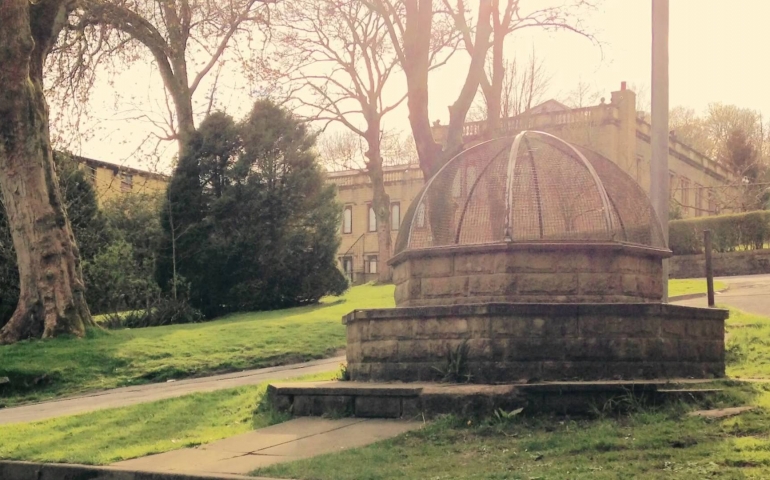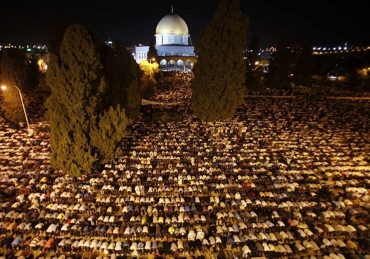Congregational Tahajjud Ṣalāh in Ramadan
Question
We understand from the overview of your book on congregational Tahajjud Ṣalāh in Ramadan and the book الوضاحة في التطوع بالجماعة itself that the congregational Tahajjud Ṣalāh is not an established practice within the Ḥanafī school. However, we also understand that this has been the continuous practice in Darul Uloom Bury over the last three decades. My question is that should this practice be initiated and promoted in Masjids in the UK that follow the Ḥanafī school?
بسم الله الرحمن الرحیم
Answer
According to the Ḥanafī school of thought, 20 Rakʿat Tarāwīḥ Ṣalāh should be performed in congregation in the month of Ramadan. Beyond this, congregational Tahajjud Ṣalāh in Ramadan is not recommended or permitted unless the congregation is less than four people. This is well documented in the books of Fiqh and Fatāwā. It is a separate matter that Shaykh al-Islām Mawlānā Ḥusayn Aḥmad Madanī (d. 1377/1957) and a group of Ḥanafī scholars practiced and endorsed congregational Tahajjud Ṣalāh in Ramadan in accordance with the Taʿāmul (practice) in Ḥaramayn and the position of Imam Mālik (d. 179/795) and Imam Aḥmad ibn Ḥanbal (d. 241/855) and some Shāfiʿī scholars, a view shared and practiced by my teachers at Darul Uloom Bury.
In light of this, it is advised not to initiate this practice in Masjids following the Ḥanafī school, where such congregational Tahajjud Ṣalāh has not been taking place. However, where this is already being practiced, it does not need to be stopped. Our respected Shaykh al-Ḥadīth Mawlānā Muḥammad Zakariyyā (d. 1402/1982) once wrote to a disciple of his who was travelling to Darul Uloom Deoband in Ramadan, “Follow Mawlānā Asʿad [ibn Mawlānā Ḥusayn Aḥmad Madanī] Ṣāḥib in Maʿmūlāt (daily routine), do not make your own routine, follow his principles in Tarāwīḥ etc. However, if you cannot participate in the Nafl [Tahajjud] prayers due to the large congregation, this is fine, but do not criticise it.”
Note: If the Imam is performing his Tarāwīḥ Ṣalāh because he did not perform Tarāwīḥ Ṣalāh earlier or performed less than 20 Rakʿat, then it is permitted for people to perform Nafl Ṣalāh behind him according to the Ḥanafī school. This was the practice of Shaykh al-Hind Mawlānā Maḥmūd Ḥasan Deobandī (d. 1339/1920) and his associates who would perform Tarāwīḥ Ṣalāh in the earlier part of the night and thereafter perform Nafl Ṣalāh behind someone who had not performed Tarāwīḥ Ṣalāh earlier.
قال محمد في الأصل (١/٣٦٣): قلت: فهل تكره الصلاة في التطوع جماعة ما خلا قيام رمضان وصلاة كسوف الشمس؟ قال: نعم، انتهى. وقال السرخسي في المبسوط (٢/١٤٤) في عدد ركعات التراويح: إنها عشرون ركعة سوى الوتر عندنا، وقال مالك رحمه الله تعالى: السنة فيها ستة وثلاثون، قيل: من أراد أن يعمل بقول مالك رحمه الله تعالى ويسلك مسلكه ينبغي أن يفعل كما قال أبو حنيفة رحمه الله تعالى: يصلي عشرين ركعة كما هو السنة، ويصلي الباقي فرادى، كل تسليمتين أربع ركعات، وهذا مذهبنا، انتهى. وقال الكاساني في البدائع (١/٢٩٠): إذا صلوا التراويح ثم أرادوا أن يصلوها ثانيا يصلون فرادى لا بجماعة، لأن الثانية تطوع مطلق، والتطوع المطلق بجماعة مكروه، انتهى. وقال ابن مازه في المحيط البرهاني (٢/٢٦٤، طبعة كراتشي): وحكي من الشيخ الإمام الأجل شمس الأئمة السرخسي رحمه الله تعالى أن التطوع بالجماعة إنما يكره إذا كان على سبيل التداعي، أما إذا اقتدى واحد بواحد أو اثنان بواحد لا يكره، وإذا اقتدى ثلاثة بواحدة ذكر هو رحمه الله تعالى أن فيه اختلاف المشايخ، قال بعضهم: يكره، وقال بعضهم: لا يكره، وإذا اقتدى أربعة بواحد يكره بلا خلاف، انتهى. وقال الحصكفي في الدر المختار (٢/٤٨): (ولا يصلي الوتر و) لا (التطوع بجماعة خارج رمضان) أي يكره ذلك على سبيل التداعي، بأن يقتدي أربعة بواحد كما في الدرر، ولا خلاف في صحة الاقتداء إذ لا مانع، نهر، انتهى. وقال الشيخ رشيد أحمد الجنجوهي في فتاوى رشيديه (ص ٢٩٧): نوافل کی نماز تہجد ہو یا غیر تہجد سوائے تراویح و کسوف و استسقاء کے اگر چار مقتدی ہوں تو حنفیہ کے نزدیک مکروہ تحریمہ ہے خواہ خود جمع ہوں خواہ بطلب آویں اور تین میں خلاف ہے اور دو میں کراہت نہیں۔ کذا فی کتب الفقہ ، انتهى. وكتبتُ في تمهيد رسالتي الوضاحة في التطوع بالجماعة: والثالث أن يراعوا أدب الخلاف، وقد نصح شيخ مشايخنا المجدد محمد زكريا الكاندهلوي تلميذه المفتي إسماعيل الكجهولوي في مكتوب إليه أن لا ينكر على التطوع بالجماعة في شهر رمضان أثناء حضوره عند أمير الهند الشيخ أسعد المدني في ديوبند، وقد طبع في مكتوبات مرشدي بالأردية (ص ٢٨١)، قال رحمه الله: معمولات میں مولانا اسعد صاحب كا پابند رہنا ، اپنا نظام الگ نہ بنانا ، تراویح وغیره انہی كے اصول پر جاری ركھیں۔البتہ نوافل میں جماعت كثیر كی وجہ سے اگر تم شركت نہ كرسكو تو مضائقہ نہیں لیكن تم اس پر نكیر مت كرنا۔ وكتبتُ في رسالتي الوضاحة في التطوع بالجماعة: اعلم أن شيخ الهند مولانا محمود حسن الديوبندي رحمه الله تعالى ومن تبعه كانوا یصلون التراویح عشرین ركعة، ثم یقومون في آخر الليل خلف رجل لم یصل التراویح، ومشى على منهجه بعض المشایخ في الهند، وهذا هو الذي ذكر لنا شیخ الإسلام المفتي محمد تقي العثماني لما سأله والدي المفتي شبیر أحمد حفظه الله ورعاه سنة ۱٤۲٦هـ في مدینة بولتن ببریطانیا، فحینئذ لا یكره عند الحنفیة، قال ابن عابدین (۲/٤۳۷): هذا كله لو كان الكل متنفلین، أما لو اقتدی متنفلون بمفترض فلا كراهة، اهـ، والظاهر أن الحكم کذلك للمتنفل خلف من یصلي صلوة التراویح، لأنھا تسن لھا الجماعة، انتهى۔
Allah knows best
Yusuf Shabbir
10 Shawwāl 1444 / 30 April 2023
Approved by: Mufti Shabbir Ahmed and Mufti Muhammad Tahir





Recitation of 20 Surahs in Tahajjud